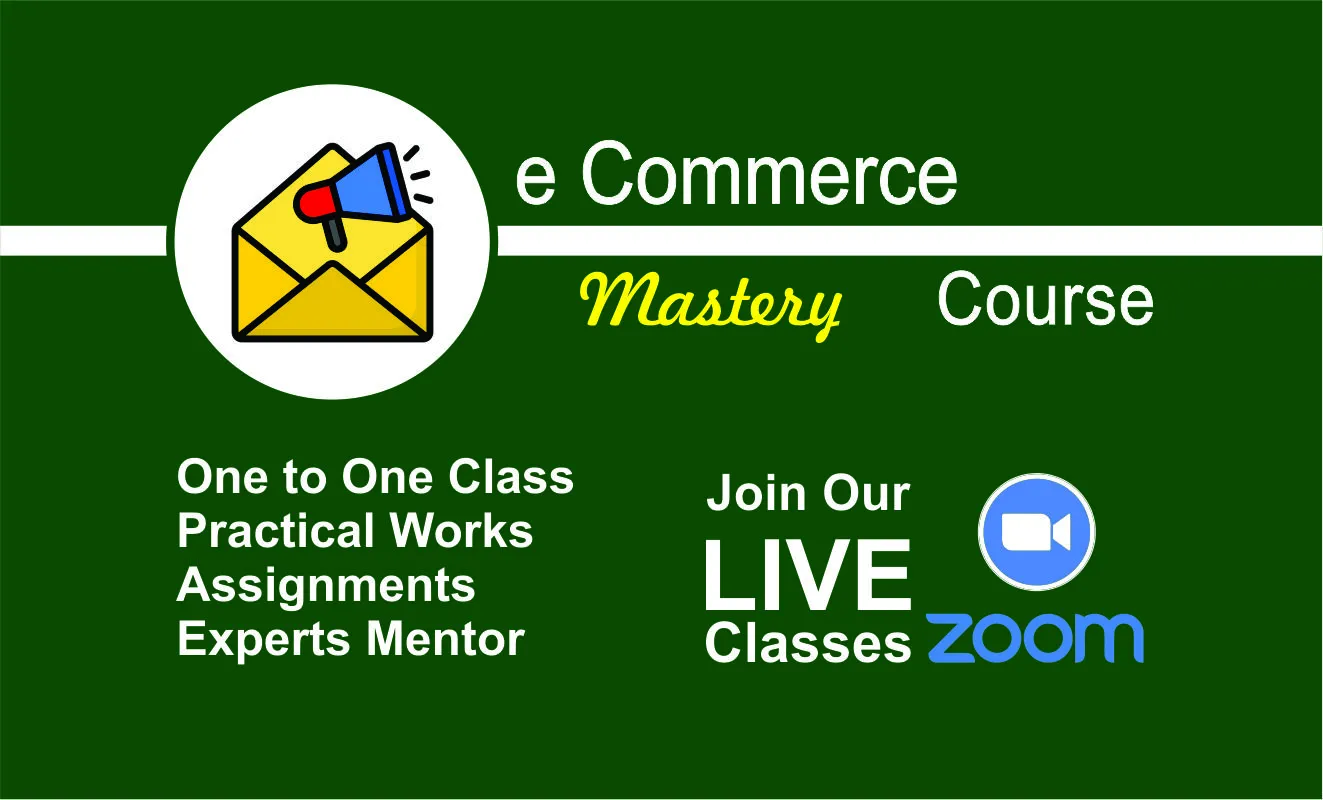The E-Commerce Fundamentals and Strategies course is designed to provide students with a comprehensive understanding of e-commerce principles, strategies, and practical skills necessary for success in the digital marketplace. Participants will learn how to plan, launch, and manage e-commerce businesses effectively, including strategies for marketing, sales, and customer engagement.
Course Outline:
Module 1: Introduction to E-Commerce
- Understanding e-commerce in the digital age
- Historical overview and evolution of e-commerce
- Types of e-commerce models (B2B, B2C, C2C, etc.)
- E-commerce ecosystem and key players
Module 2: E-Commerce Business Models
- Choosing the right business model
- Marketplaces vs. independent online stores
- Subscription-based models
- Dropshipping and affiliate marketing
Module 3: Setting Up Your E-Commerce Store
- Domain selection and registration
- Choosing an e-commerce platform (e.g., Shopify, WooCommerce)
- Store design and user experience (UI/UX)
- Product catalog creation and management
Module 4: Payment Processing and Security
- Payment gateways and merchant accounts
- Payment processing options (credit cards, digital wallets)
- PCI DSS compliance and data security
- Fraud prevention and chargeback management
Module 5: Inventory Management and Fulfillment
- Inventory tracking and management
- Order processing and fulfillment options
- Third-party logistics (3PL) and dropshipping
- Shipping and delivery strategies
Module 6: E-Commerce Marketing Strategies
- Search engine optimization (SEO)
- Pay-per-click advertising (PPC)
- Email marketing campaigns
- Social media marketing and influencer partnerships
Module 7: Customer Acquisition and Retention
- Customer personas and target audience analysis
- Conversion rate optimization (CRO)
- Customer relationship management (CRM)
- Loyalty programs and customer retention strategies
Module 8: Analytics and Performance Measurement
- Web analytics tools (e.g., Google Analytics)
- Key performance indicators (KPIs)
- Sales tracking and reporting
- A/B testing and data-driven decision-making
Module 9: Legal and Regulatory Considerations
- E-commerce laws and regulations
- Privacy policies and data protection
- Terms of service and refunds/returns policies
- Intellectual property and copyright
Module 10: International E-Commerce
- Expanding into global markets
- Currency and payment considerations
- Cross-border logistics and fulfillment
- Localization and cultural sensitivity
Module 11: Mobile Commerce (M-Commerce)
- Mobile shopping trends and statistics
- Responsive design and mobile optimization
- Mobile payment options (e.g., Apple Pay, Google Pay)
- Mobile app vs. mobile web strategies
Module 12: E-Commerce Trends and Emerging Technologies
- Artificial intelligence (AI) and chatbots
- Voice commerce and virtual assistants
- Augmented reality (AR) and virtual reality (VR)
- Blockchain and cryptocurrency in e-commerce
Module 13: E-Commerce Business Plan and Strategy
- Developing a comprehensive e-commerce business plan
- Strategic planning for growth and scalability
- Case studies of successful e-commerce businesses
- Pitching your e-commerce business idea
Module 14: Final Project and Presentation
- Implement a small-scale e-commerce project
- Present the project to peers and receive feedback
- Graduation and certification
Course Duration: The course can be delivered over 12 to 16 weeks, with each module typically lasting one week. The duration can be adjusted based on the depth of coverage and participants' prior experience.
Assessment: Students will be evaluated through assignments, quizzes, a final e-commerce business plan, and participation. Successful completion of the course will lead to an E-Commerce Fundamentals and Strategies certificate.
Prerequisites: No specific prerequisites are required, but a basic understanding of business concepts and internet usage is recommended.
Target Audience: This course is suitable for aspiring e-commerce entrepreneurs, small business owners, marketing professionals, and individuals interested in starting or growing an e-commerce venture.
Note: The course outline can be customized to suit specific learning objectives and student backgrounds.
